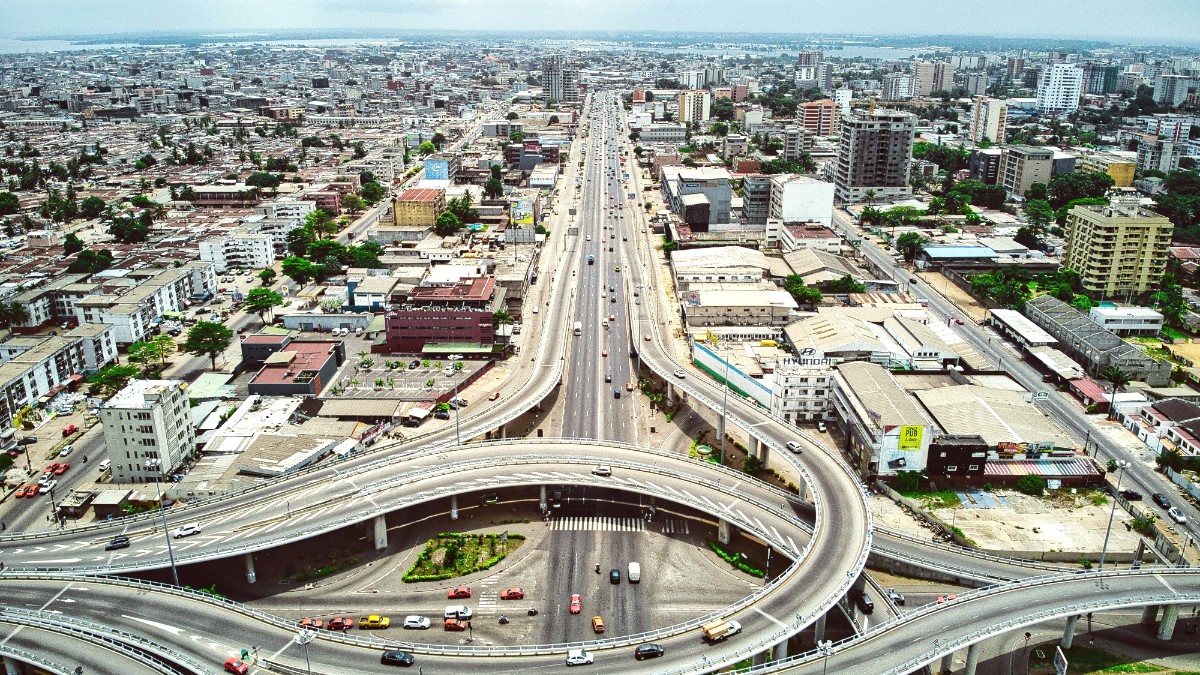
Cote Divoire
You find fewer tourists compared to the high season, potentially allowing for lower prices on flights and lodging. Temperatures remain warm.
The start or end of rainy seasons brings sudden, intense downpours, which might disrupt outdoor plans.
You find fewer tourists compared to the high season, potentially allowing for lower prices on flights and lodging. Temperatures remain warm.
The start or end of rainy seasons brings sudden, intense downpours, which might disrupt outdoor plans.
Peak Travel Time
Pleasant weather, lower humidity, minimal rainfall makes this period ideal for outdoor activities, city exploration, and beach trips. Many cultural events and festivities occur.
Higher demand for flights and accommodation can lead to increased prices. Tourist sites may have more visitors.
Transitional Months
Fewer tourists than high season, potentially lower prices for flights and lodging. Temperatures warm.
Humidity rises. The start or end of rainy seasons brings sudden, intense downpours, which might disrupt outdoor plans.
Rainy Period
Significantly lower prices for flights and accommodation. Landscape appears lush and green. Fewer crowds at attractions.
High humidity and frequent, heavy rainfall. Some unpaved roads may get difficult to travel. Heavy rains can disrupt outdoor activities, making spontaneous plans harder.
Harmattan Wind (December-January): This dusty wind reduces air quality and visibility. If you have respiratory sensitivities, bring a Light scarf or mask.
Heavy Rainfall (May-July): Localized flooding is common, specifically in low-lying urban areas. This can impact transportation. Plan for delays and carry an Umbrella or Lightweight rain jacket.
Carry adequate water.
Be ready for sudden weather shifts.
Choose waterproof footwear.
Most foreign nationals need a visa for Côte d'Ivoire.
Provide proof of onward or return travel.
You may need to show evidence of sufficient financial means to cover your stay.
Costs vary based on your travel style, from budget-friendly to luxurious.
Be informed about vaccinations, common health concerns, and local safety.
Proof of Yellow Fever vaccination is Mandatory for entry into Côte d'Ivoire. Carry your original International Certificate of Vaccination or Prophylaxis (ICVP).
Consult a healthcare professional well before your trip for advice on additional vaccinations. These include Typhoid, Hepatitis A, Hepatitis B, Meningitis (ACWY), Rabies (if planning outdoor activities or animal contact), Tetanus, Diphtheria, and Pertussis (TDAP), and Measles, Mumps, Rubella (MMR).
Côte d'Ivoire has a high risk of malaria transmission year-round, including in Abidjan. Antimalarial prophylaxis (e.g., Malarone, Doxycycline) is strongly recommended. Discuss the best option for you with your doctor.
Malaria: This mosquito-borne disease poses a significant risk.
Take your prescribed antimalarial medication consistently. Use Insect repellent containing DEET or Picaridin on exposed skin. Sleep under an insecticide-Treated mosquito net, especially if your accommodation lacks sealed windows or air conditioning. Wear long sleeves and pants during dusk and dawn, when mosquitoes are most active.
Diarrheal Diseases: Traveler's diarrhea is common. Drink only Bottled water or water that has been boiled or treated with purification tablets. Avoid ice in drinks unless purified water is confirmed. Eat food hot and freshly cooked. Peel all fruits and vegetables yourself. Practice frequent hand hygiene, especially before eating.
Dengue Fever/Chikungunya: Also mosquito-borne, with no specific vaccines. Prevention comes from avoiding mosquito bites, similar to malaria prevention. Schistosomiasis: Do not swim or wade in freshwater lakes or rivers, as these can harbor parasites causing this infection.
Abidjan has several hospitals. Private clinics generally offer better care standards than public facilities. Polyclinique Internationale Sainte Anne Marie (PISAM) in Cocody is a private hospital with relatively modern facilities and some English-speaking staff. Clinique Farah is another option.
Emergency services are limited compared to Western standards, and response times can be slow. For serious emergencies, contact your travel insurance provider immediately for medical evacuation guidance.
Tap water in Abidjan is Not safe for drinking. Always consume bottled water, sealed purified water, or water that has been boiled and filtered. Exercise caution with street food. Ensure food is thoroughly cooked and served hot. Avoid raw vegetables unless peeled and washed with safe water. Avoid unpasteurized dairy.
Abidjan experiences a moderate to high crime rate. Petty crime, like pickpocketing and bag snatching, is common. Occasional violent crime also happens.
Remain aware of your surroundings at all times.
Use reputable taxis or ride-sharing apps (like Yango) rather than hailing random vehicles.
Avoid carrying all your cash or important documents in one place. Use a money belt or secure hotel safe.
Purchase comprehensive travel insurance that covers medical emergencies, emergency medical evacuation, trip cancellation or interruption, and theft of personal belongings. Confirm your policy covers tropical diseases and any adventure activities.